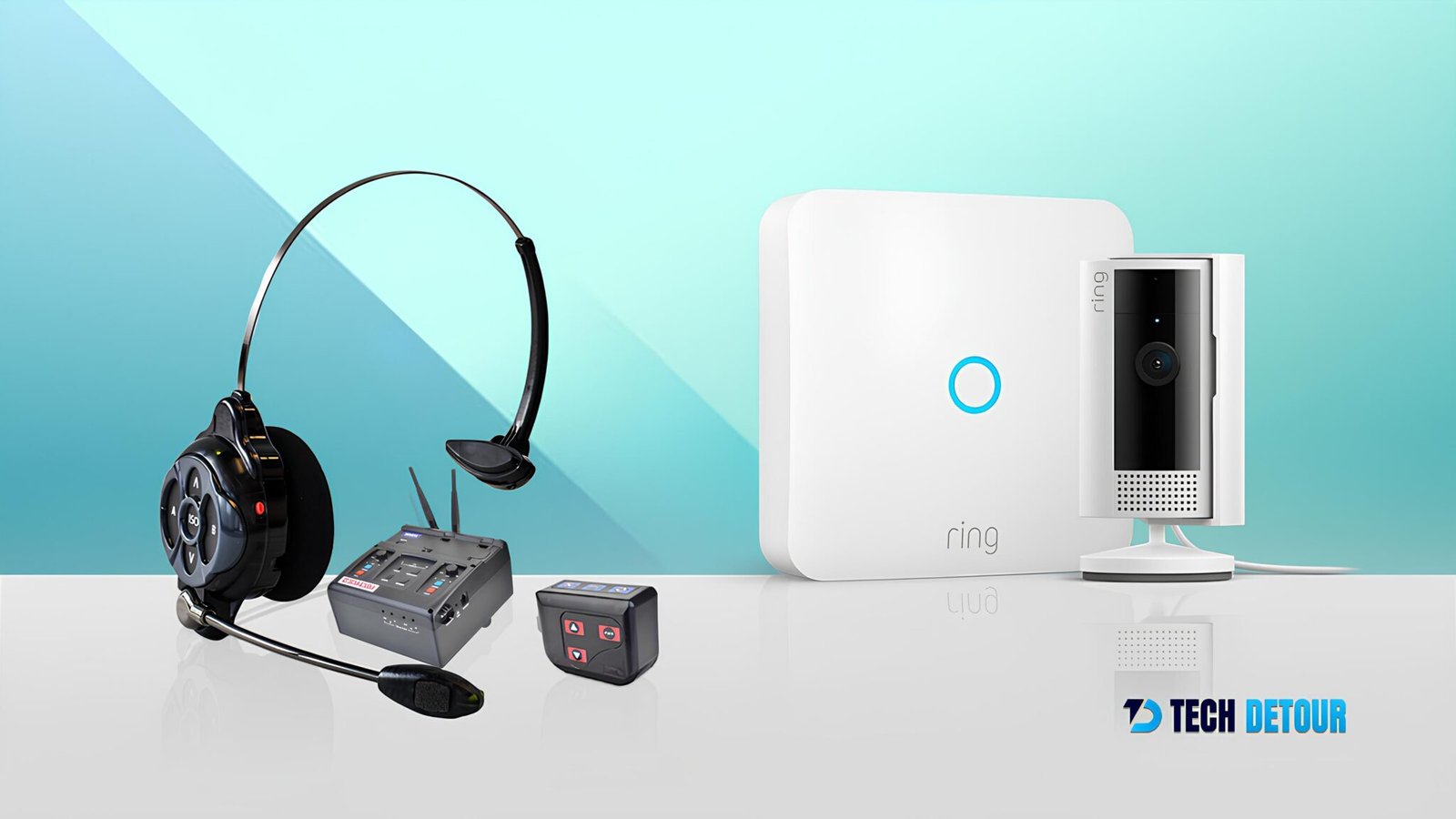So, you are trying to resolve the confusion between choosing traditional communication setups or advanced ones. You better know the usefulness of intercom systems for connecting homes and workplaces. The part begins when you need to choose between a wired or wireless intercom system. It is normal and happens with most people because both wireless intercoms and wired intercoms have their own benefits and drawbacks.
What is an intercom system?
An intercom system allows users to communicate with each other within a specified area. The advanced intercom systems also support video communication and offer enhanced security features, access control, and convenience. The internal communication device is specifically designed for two-way communication between two devices.
Other than facilitating communication systems, the advanced intercom systems feature microphones, speakers, cameras, and screens. These can also connect with smartphones and support advanced functionalities like keycards or face recognition. There are two main types of intercom systems:
- Wired intercom system
- Wireless intercom system
Choosing the right type depends on some essential factors such as budget, space, and security needs.
Difference between wireless and wired intercoms
Wired and wireless intercom systems are different from each other in many ways in terms of technicalities and their working. Security, signal transmission, and power consumption are the major differences between the intercom types. Wired intercom systems use physical cables to send signals. On the other hand, wireless intercom systems use radio signals, Wi-Fi, or Bluetooth to support communication.
Moreover, batteries are the major power source of wireless intercom systems. However, a dedicated electrical connection empowers wired intercom systems.
Unless someone does not physically access the wires, it is very hard for someone to bug communication within wired intercom systems. Whereas the wireless intercom system sends data through air, it becomes more vulnerable to eavesdropping or data interception.
The wired intercom system offers a limited range of 100 meters per cable section. Adding new units is complex because it requires more cable. But wireless intercom systems are flexible and easy to install. These do not need extra wires for expansion.
Wired intercom features
Wired intercoms offer unmatched reliability and strong signals for clear communication. They do not need an internet connection to ensure consistent connectivity between rooms and buildings. The hard-wired intercoms serve for long periods like 10 to 15 years, but they require proper installation. However, the installation is expensive because it involves physical cabling.
Pro of wired intercom
- No worries about uninterrupted connections.
- Less vulnerable to external interference.
- Independent from the internet.
- Long time durability.
- Consistent connection across rooms and buildings.
- Wired intercom devices do not need charging.
Cons of wired intercom
- Complex installation process may require drilling, cable routing or wall modifications.
- Significantly higher upfront cost as compared to wireless intercom systems. Because it requires materials, labor and infrastructure planning.
- Installation of a wired system is not always a practical solution because of retrofitting challenges, as retrofitting challenges may compromise the aesthetic appeal of interior spaces.
- Upgrading, like adding new units or changing device locations, is harder after installation.
- Wired set ups need the physical presence of technicians for updates, as the option of remote updates is not available.
- Users also get physical indoor units which is not necessary because the majority of the people use smartphones. These add costs and create a clutter of devices.
- Wired intercom systems often face compatibility challenges while integrating with smart devices like locks, surveillance cameras, or fire alarms.
- Setting up wired intercom systems can take even days and weeks for larger buildings.
The best cases to use wired intercom
The use of wired intercom systems is perfect in certain situations, where reliability, security, and clear communication are the top priority.
- In environments like banks, maintaining confidentiality in communication is critical.
- Good for places with long distances and buildings with multiple floors.
- Well suited for under construction sites as it is the best time to install wiring.
- These systems are perfect for places where the internet is not accessible.
Wireless intercom features
The advanced features of wireless intercom systems highlight their value, making them increasingly essential in today’s fast-paced and connected world. These connect devices using radio signals, Wi-Fi, or Bluetooth. Users do not need to deal with the mess of wires while using these wireless systems. These are easy to install and less expensive than wired systems.
Pro of wireless intercom
- Units are easily moveable, simplifying repositioning within space.
- Offers advanced smart features.
- Easy to setup and upgrade.
- Receive updates through the internet.
- Users can integrate with their smartphones.
- Lower set up costs.
Cons of wireless intercom
- Signals weaken sometimes.
- Relying on the internet.
- Security risks, unless properly encrypted.
- It depends on charging or battery replacement.
The best cases to use wireless intercom
Wireless intercom systems offer convenience in use and flexibility to move around while communicating. Users can install them in their houses, and these are also best for buildings where drilling is not an option. Moreover, users can also enhance their security with proper encryption. Let us discuss some of the best use cases of the wireless intercom systems:
- Where users do not need a mess of wires.
- These are perfect for apartments and older buildings, where wiring is hard.
- For the places where frequently repositioning of devices is required.
- When users need smart features in their intercom systems.
Key considerations before choosing the intercom type
While choosing a wired or wireless intercom system users must consider the following key factors:
- Understanding the type of building is essential before choosing the type of intercom system as it directly affects the installation process.
- Users must consider whether they may need to move, expand, or reconfigure the intercom system in the future.
- While considering the budget, users must count the initial cost, long term expenses and upgrades.
- Check internet availability because wireless intercom systems depend on it.
Wrapping up
Defining your specific needs and purposes for using wired and wireless intercom system is the most important part to choose between them. Having the answers of how and where to use these systems allows you to identify which system fits best for you. Both intercom systems, wired and wireless, are durable and reliable but wired ones are more long lasting and mostly advanced wireless intercom system offer smart features. Moreover, the wireless option is more suitable for changing environments and modern lifestyles. Therefore, choose the system that matches your lifestyle, security requirements or communication goals.
Stay connected with Tech Detour for more insights on smart solutions like intercom systems. We offer expert opinions and reviews on the latest technologies. Follow us to get updates and comparisons, helping you to make smarter tech choices.




















